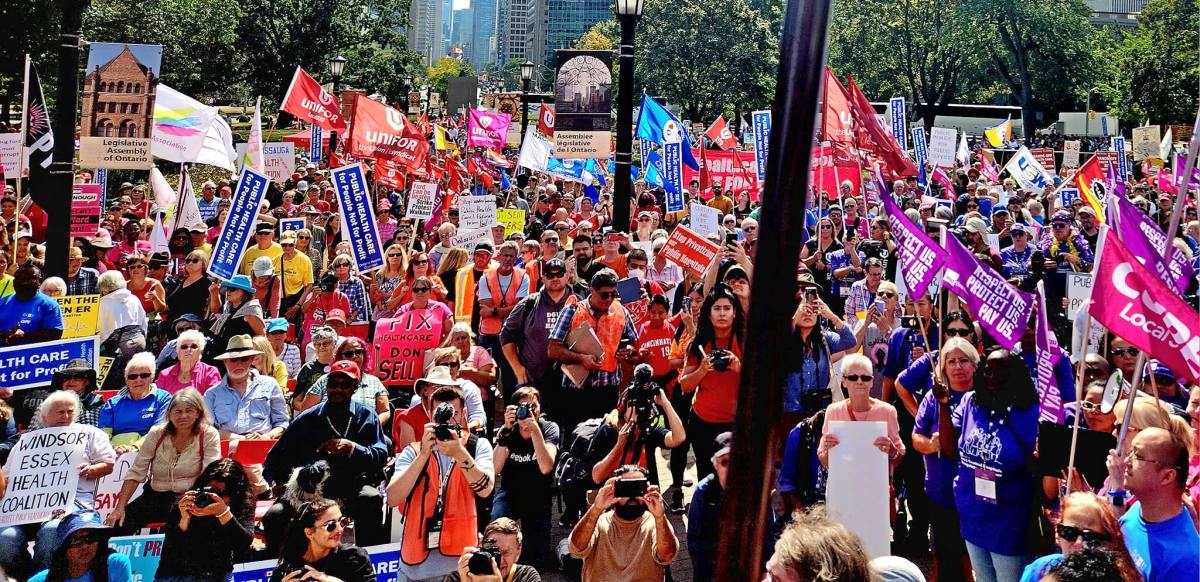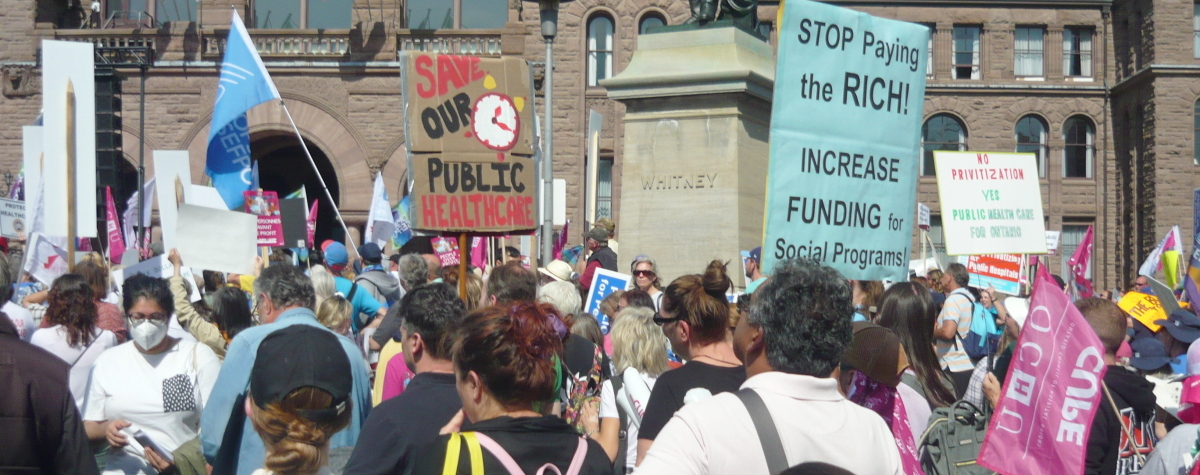September 29, 2023 - No. 55
Health Care Is a Right!
Ontarians Converge at Legislature on Opening Day to Say No! to Privatization of Hospitals!
• Worsening Crisis in Ontario Long-Term Care
and Nursing
Homes
Health Care Is a Right!
Ontarians Converge at Legislature on Opening Day to Say No! to Privatization of Hospitals!
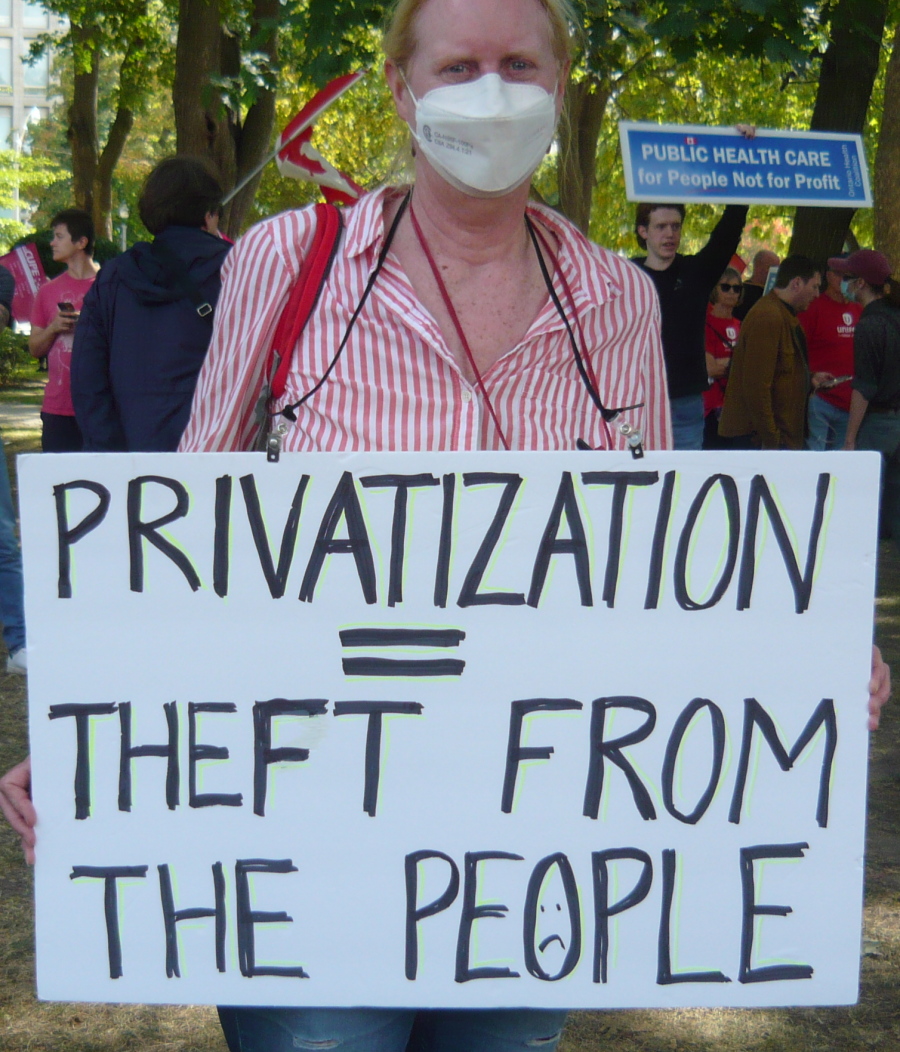
The event was organized by the Ontario Health Coalition (OHC) and the Ontario Council of Hospital Unions (CUPE) supported by many unions such as Unifor, CUPE, PSAC, OPSEU, SEIU and by the Ontario Federation of Labour.
One of the first to speak was Chief Chris Moonias, of the Neskantaga First Nation near James Bay who pointed out that Indigenous People living in fly-in isolated communities in northern Ontario like his do not have even basic health care. He pointed out that almost all communities have no doctor or ability to get help in a medical emergency which results in many preventable deaths. He said that the Ford government has not been responsive to the calls to improve medical services in the north and called for Ford's resignation.
The executive director of the OHC, Natalie Mehra, denounced the Ford government's ongoing campaign to underfund and weaken the public health care system in order to justify further privatization. She said that all Ontarians deserved to have a publicly funded and publicly operated health care system that meets their needs. She denounced the privatization of health care in the senior care system where she pointed out that close to 5,000 people died during the COVID-19 pandemic, three-quarters of them in for-profit institutions. Rather than hold those responsible to account, the Ford government has handed the owners of these seniors' homes a 30-year extension of their contracts.
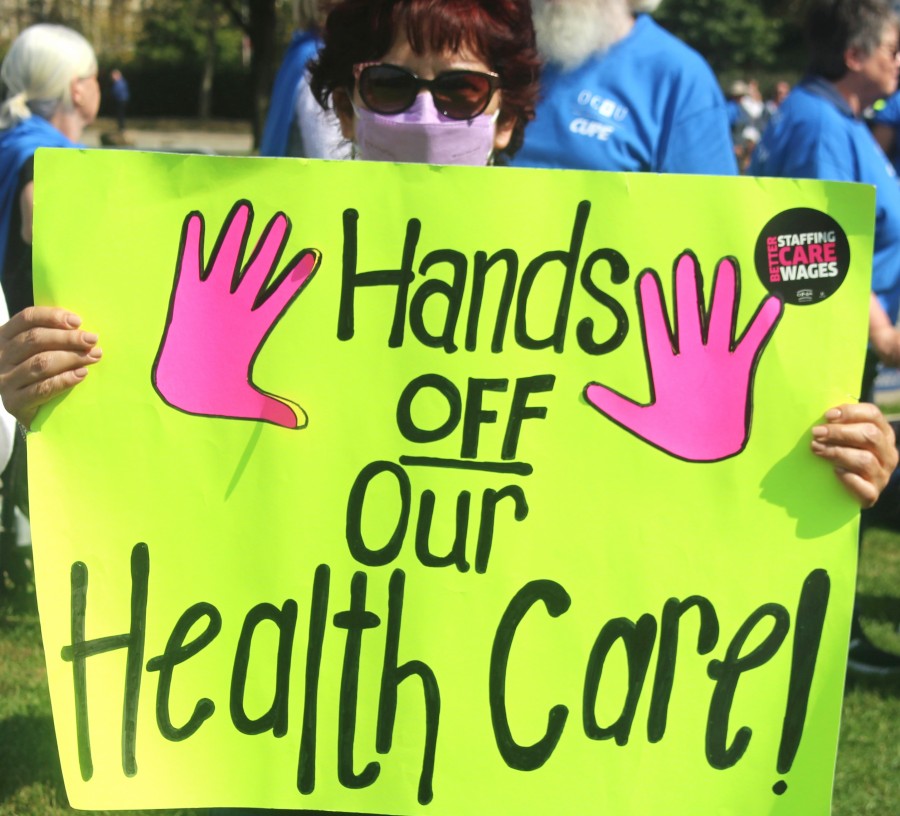
Dr. Raghu Venugopal, an emergency physician in Toronto hospitals, denounced the Ford government for shutting down hundreds of emergency rooms, including nearly 500 closures already this year, some of them permanent. He said that because the overall social conditions in Ontario have worsened and as a result of the health care cuts, more and more people are seeking care in hospital emergency rooms, stressing an already overwhelmed hospital system. Dr. Venugopal said that the $1 billion diverted to filling the pockets of the private health care operators last year alone, could have been used to hire more staff and open up the emergency rooms. "It is time to put the health care of the many over the profits of a few," he said.
He also pointed out that thousands of people have died waiting for tests and surgeries, deaths that could have been prevented in a properly staffed publicly-funded system. Dr. Venugopal paid tribute to the tens of thousands of nurses and other health care staff whose work and dedication has held the line. He said that he was very encouraged by the united actions of Ontarians in defence of the public health care system and that this resistance must be stepped up to stop and reverse the destruction taking place.
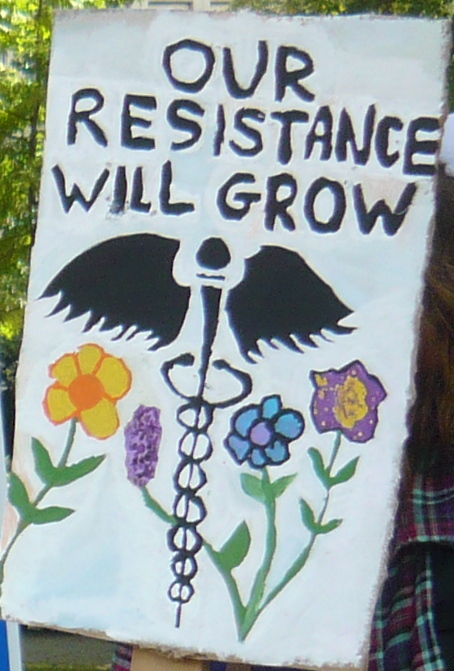
The rally also heard from several other unions as well as from families of some who died in seniors' homes during the pandemic, patients who have been exploited by private clinics in Ontario, and politicians from the NDP, Liberal and Green Party.
The determination of the people gathered to see the fight through to the end was expressed by the chant, "We Won't Back Down! We Won't Back Down!" which could be heard inside the legislature as well as for blocks around.

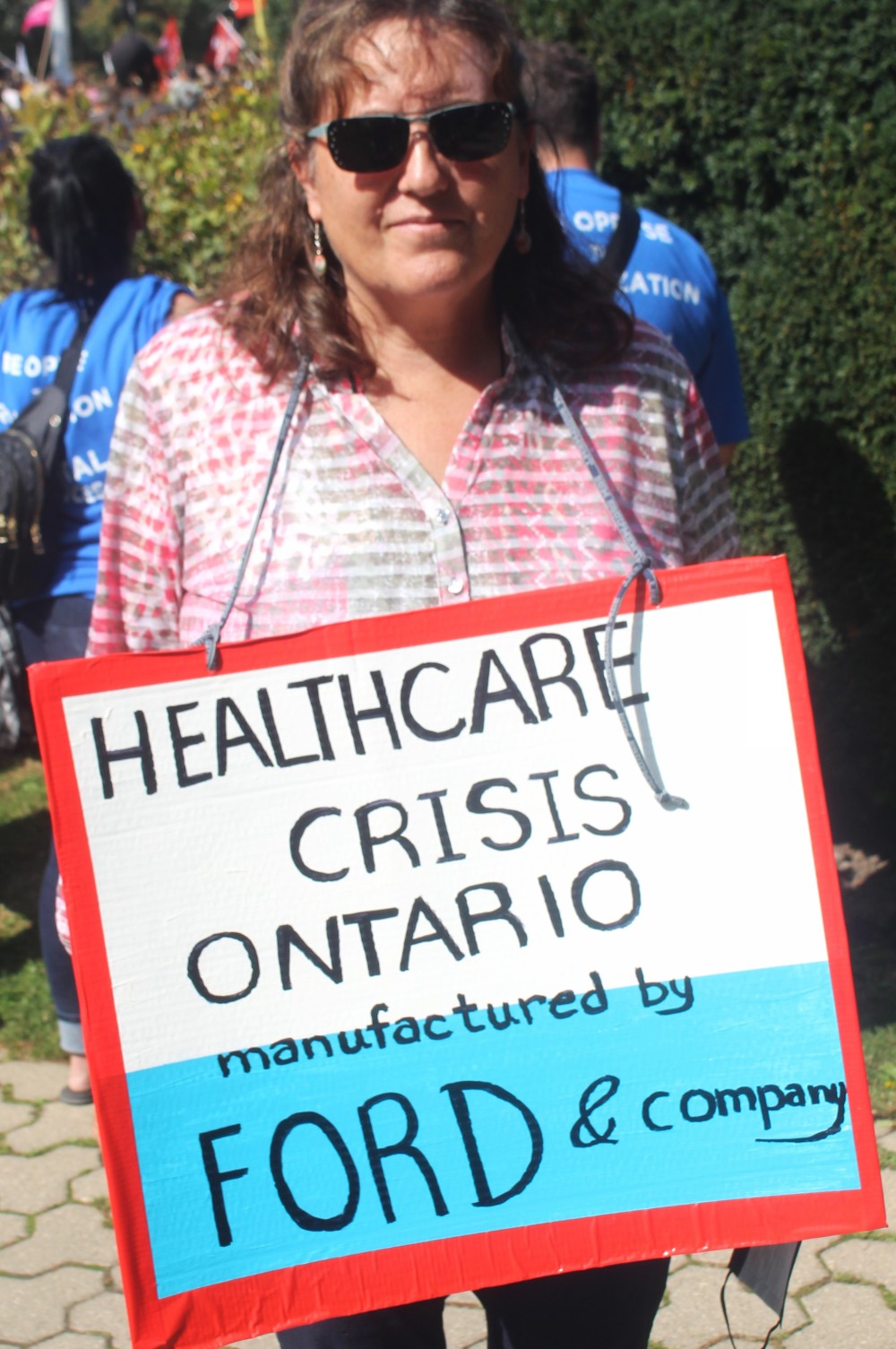
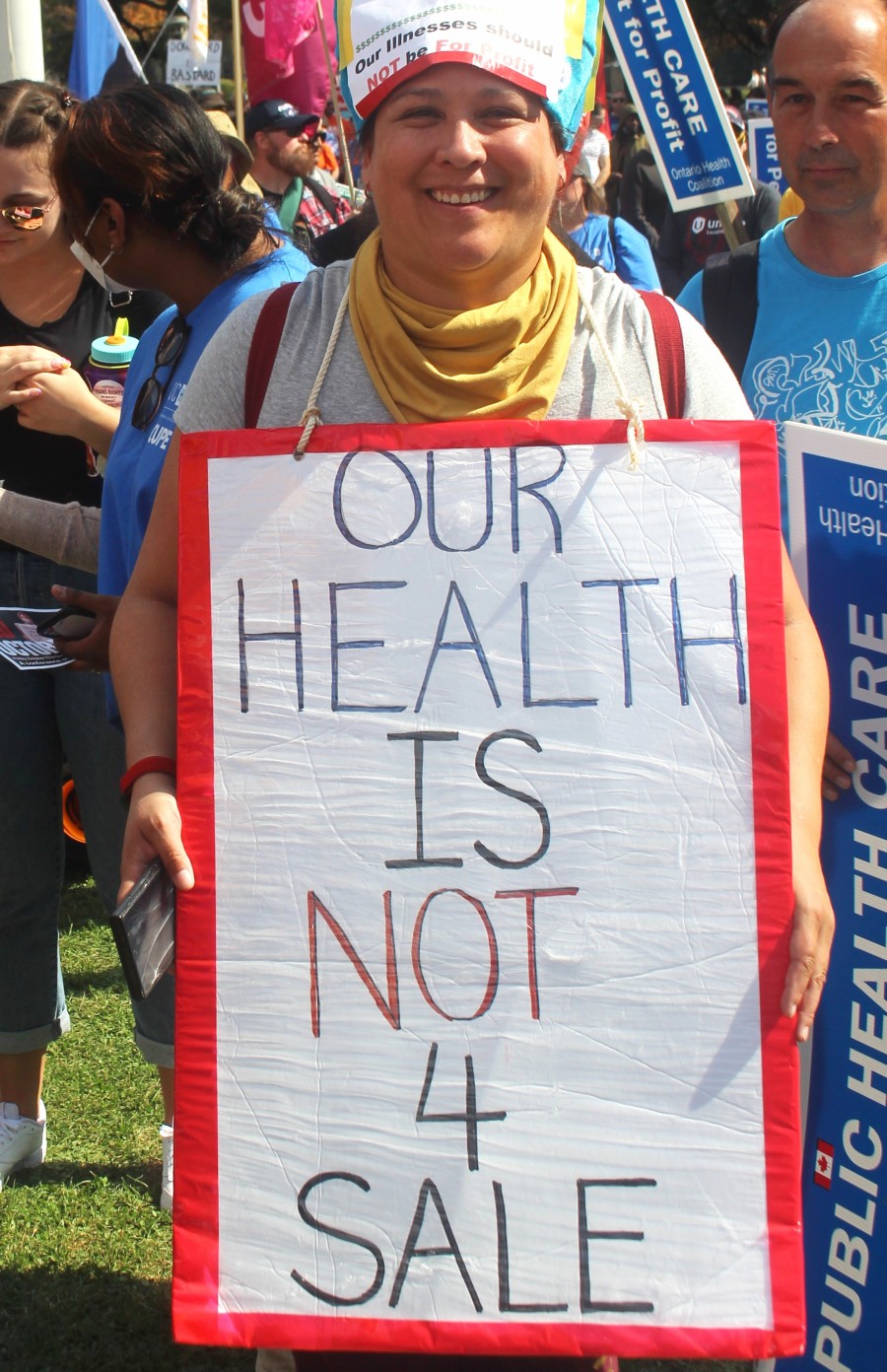
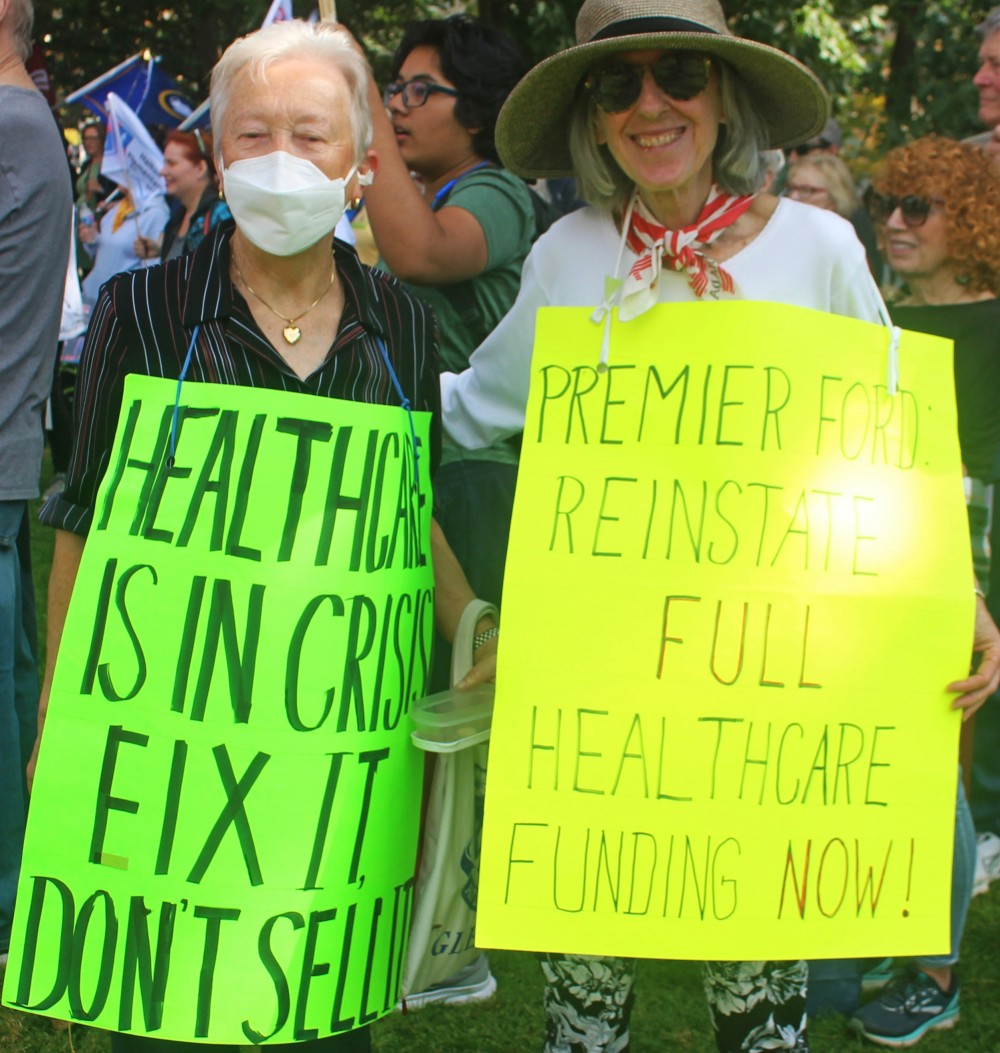
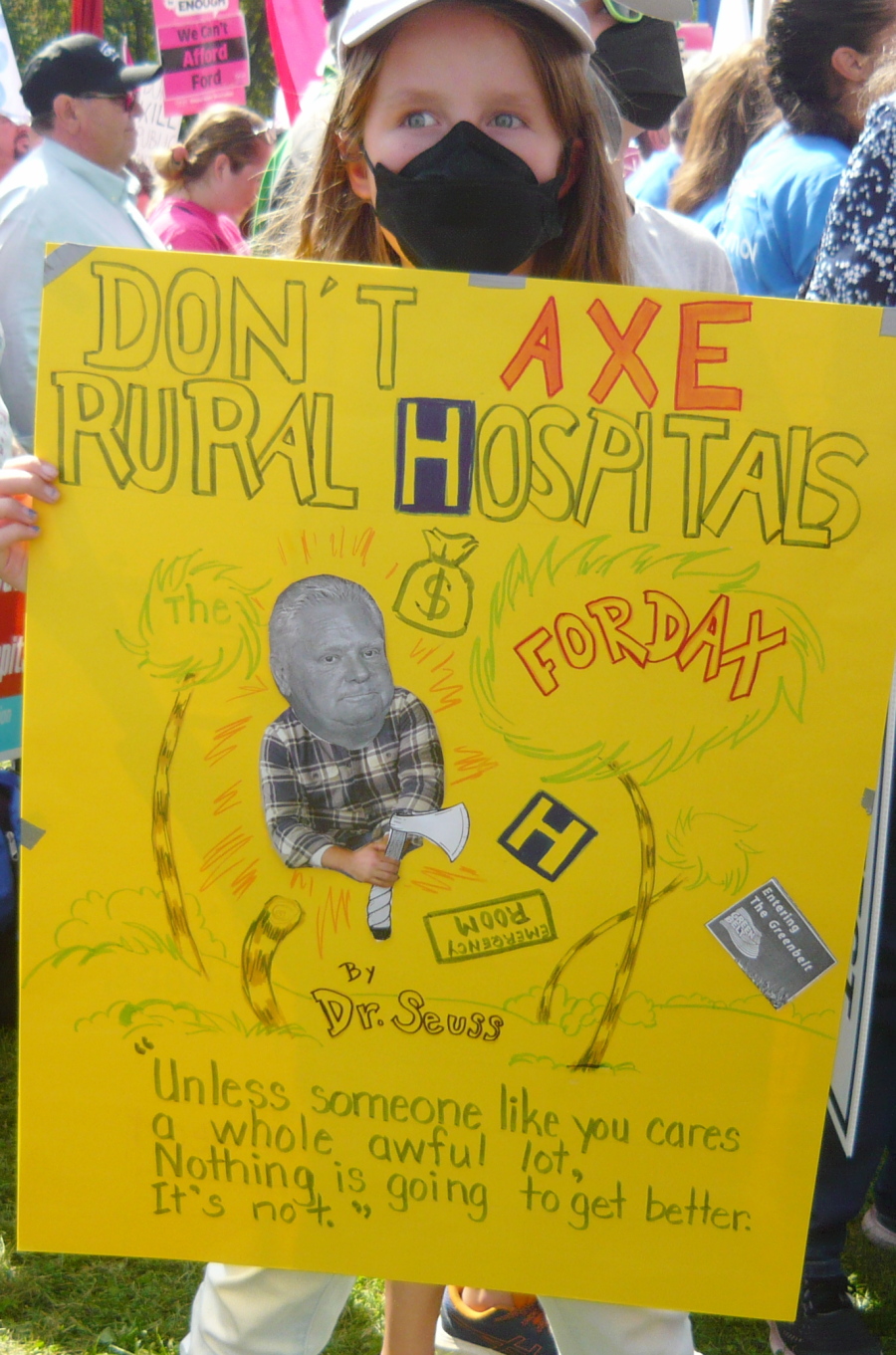
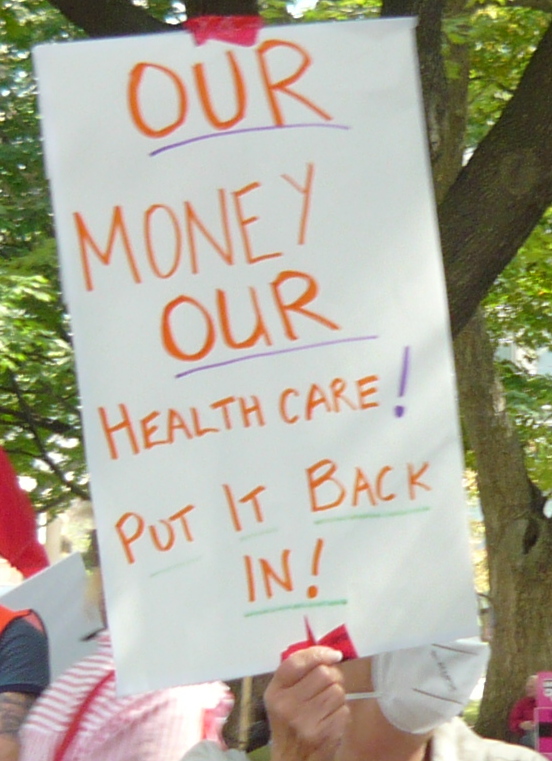

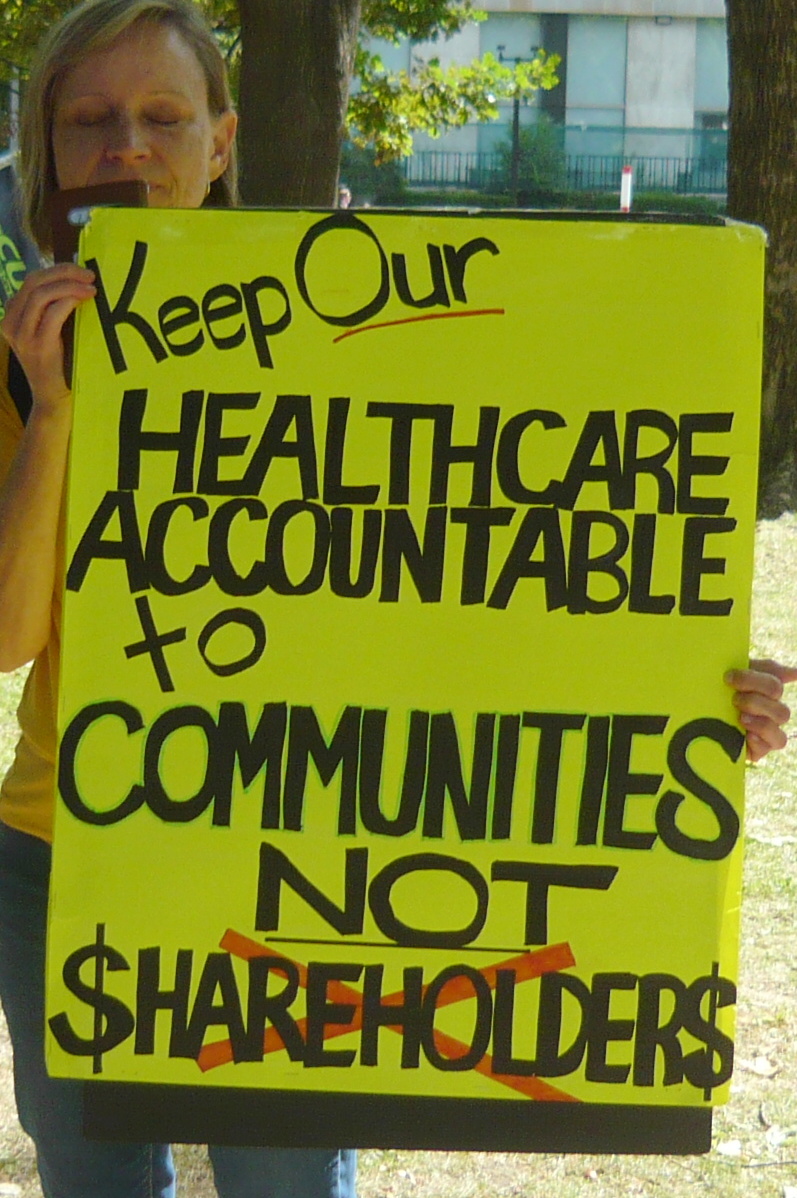


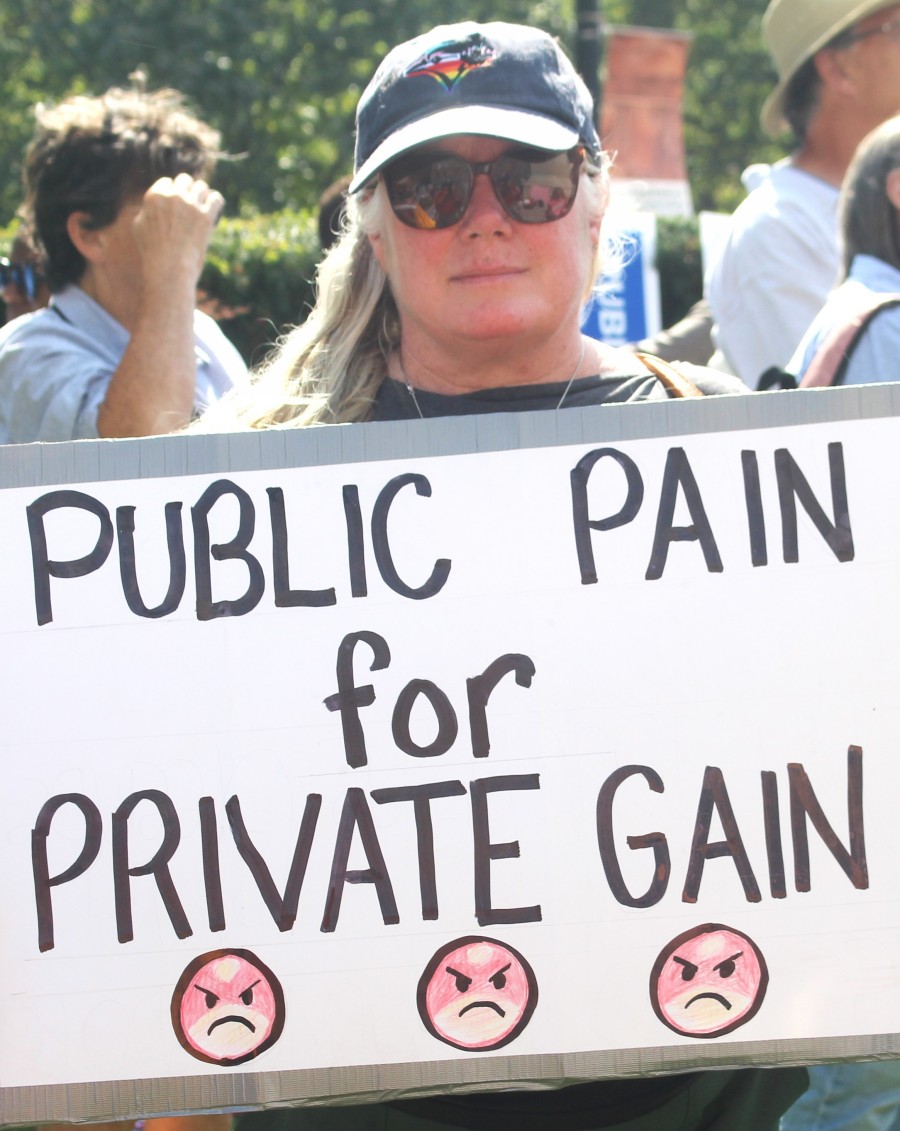
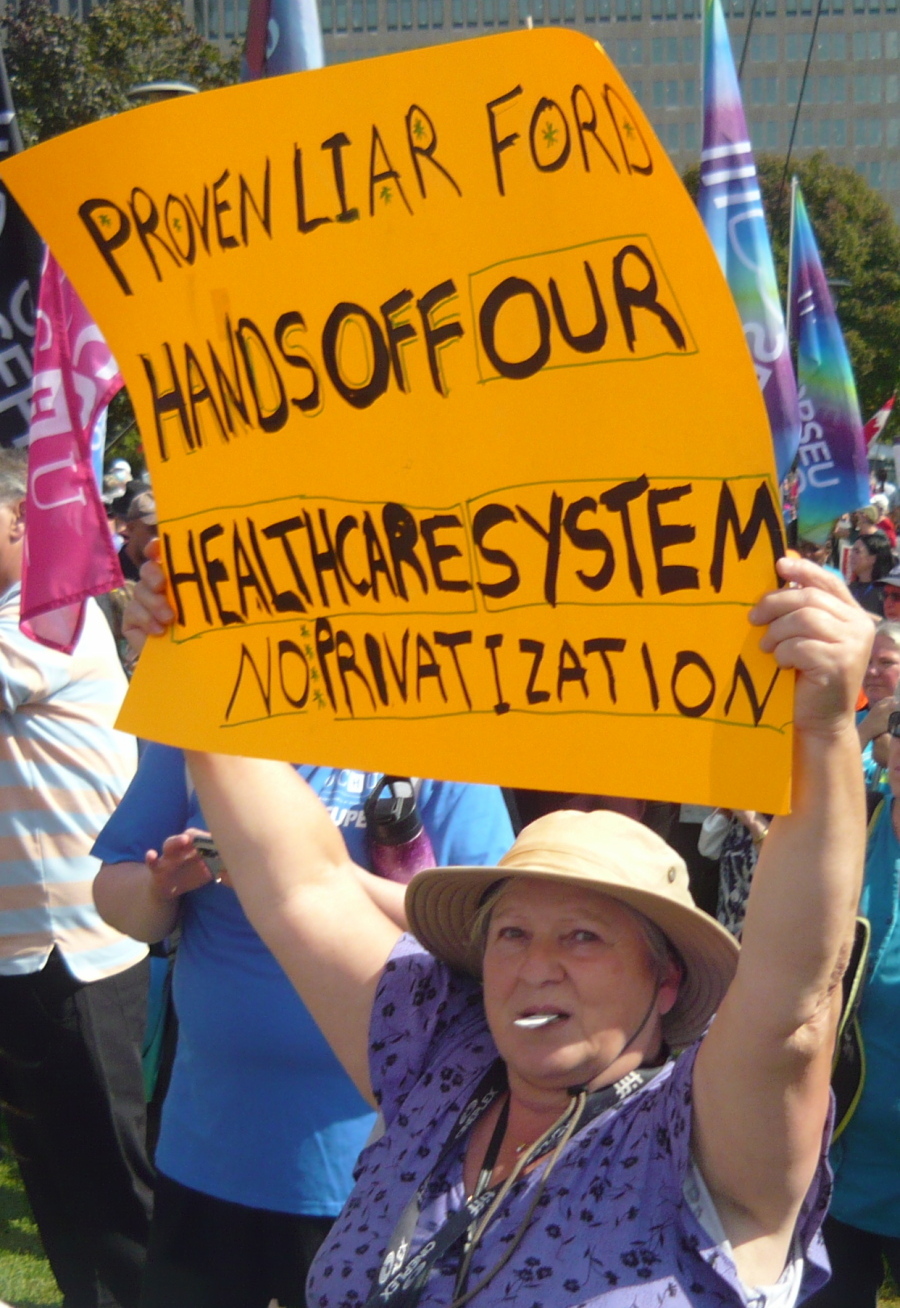
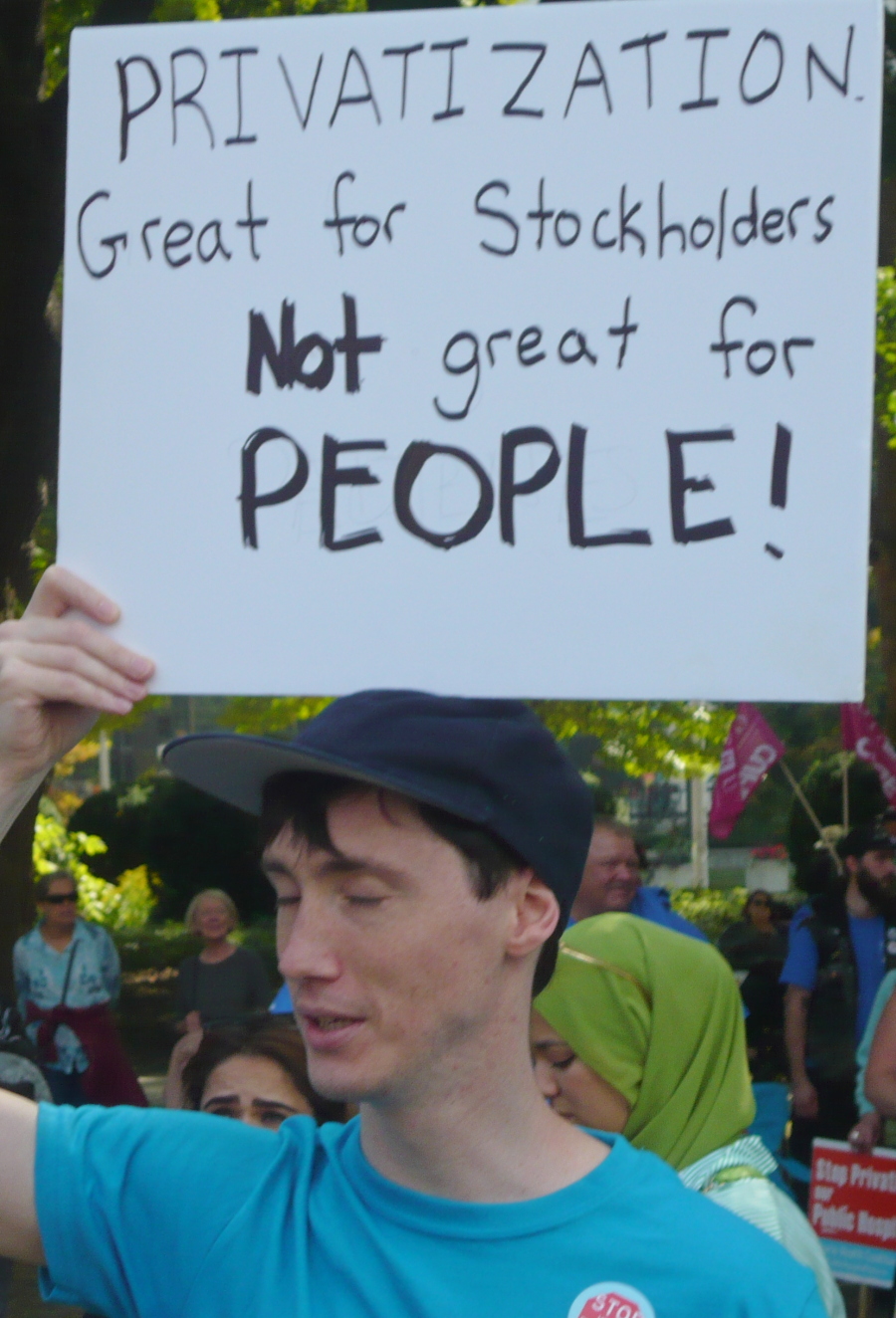
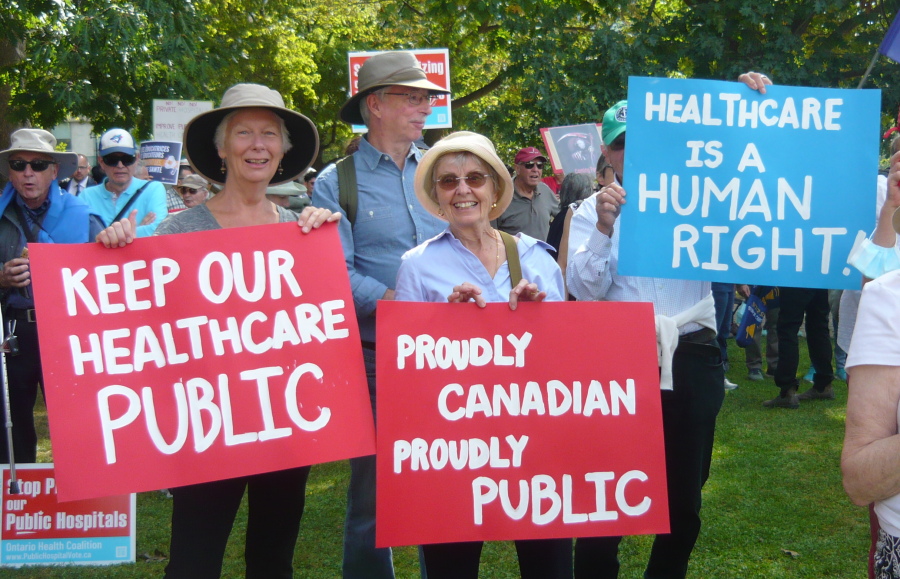
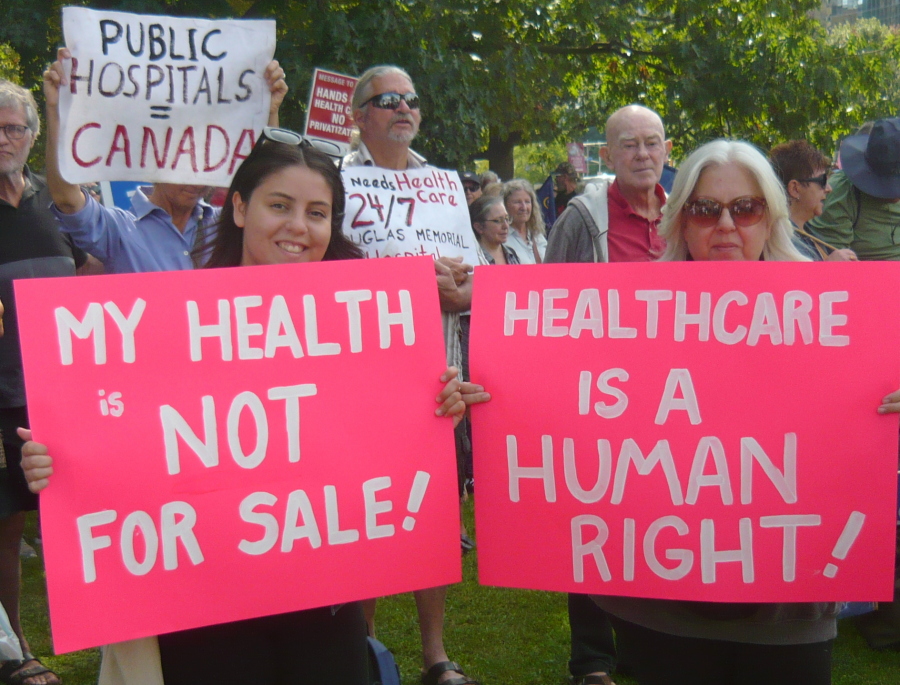

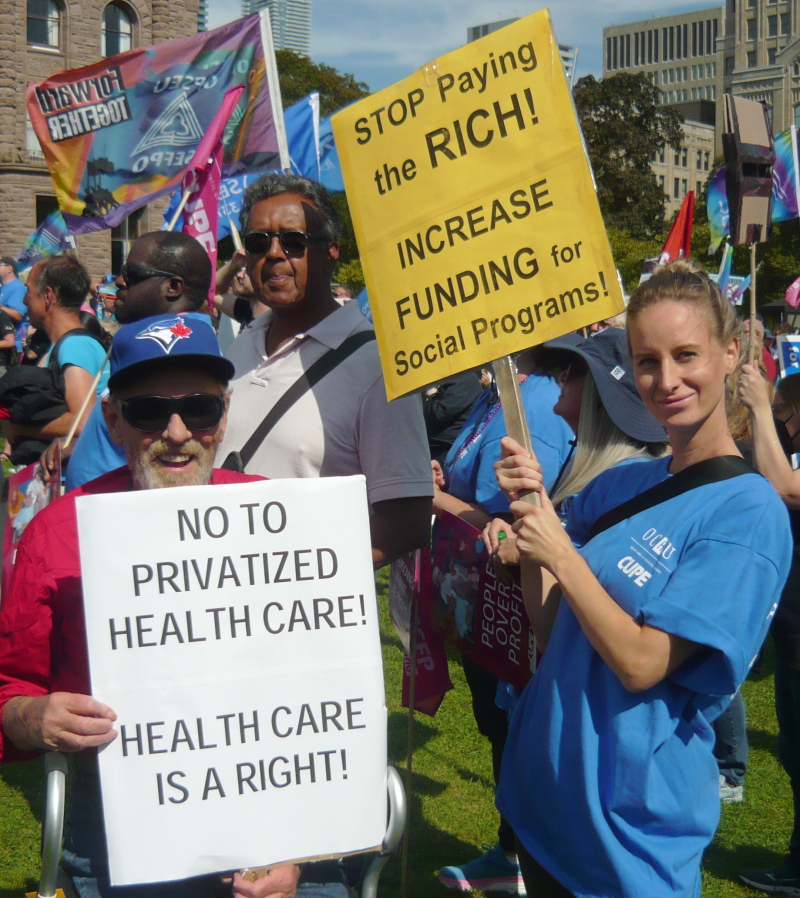
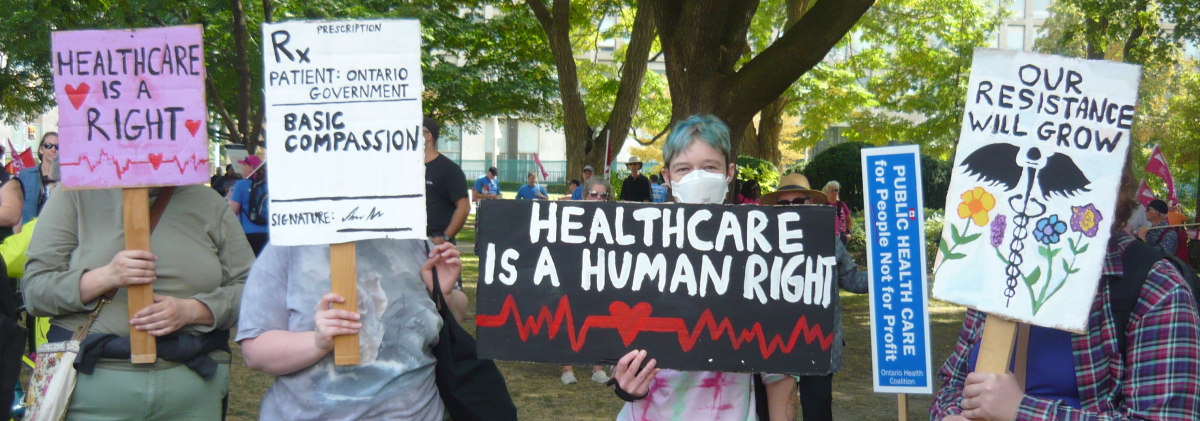
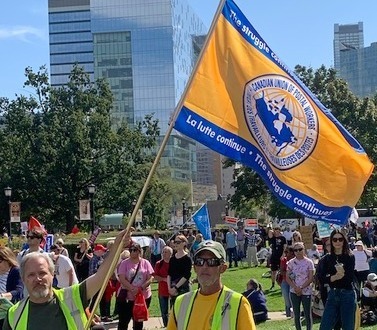
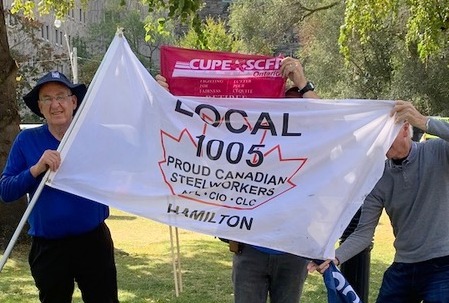
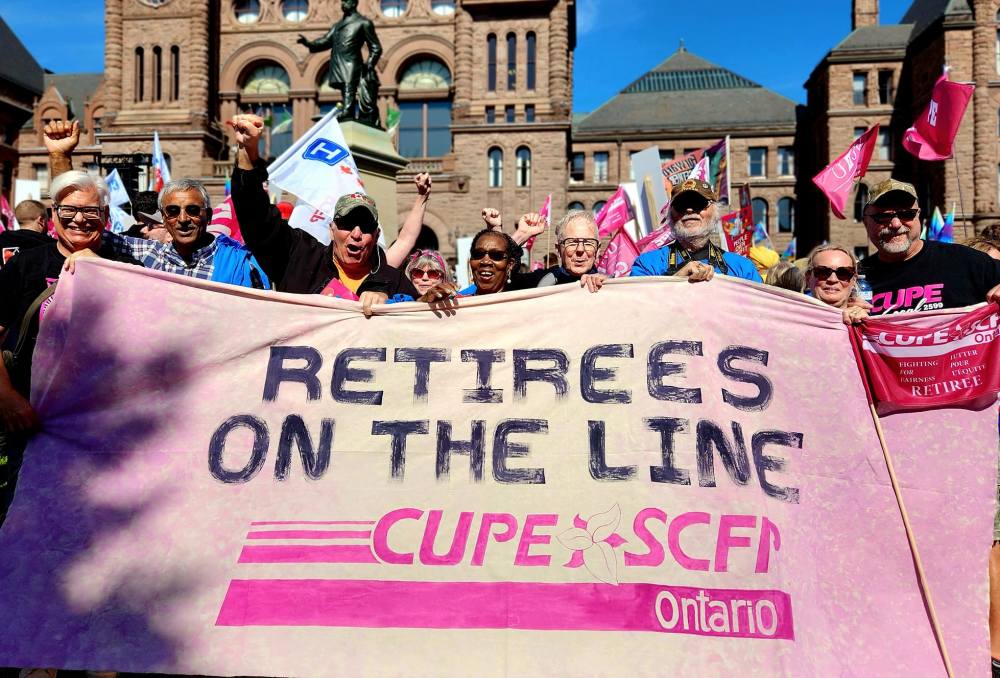
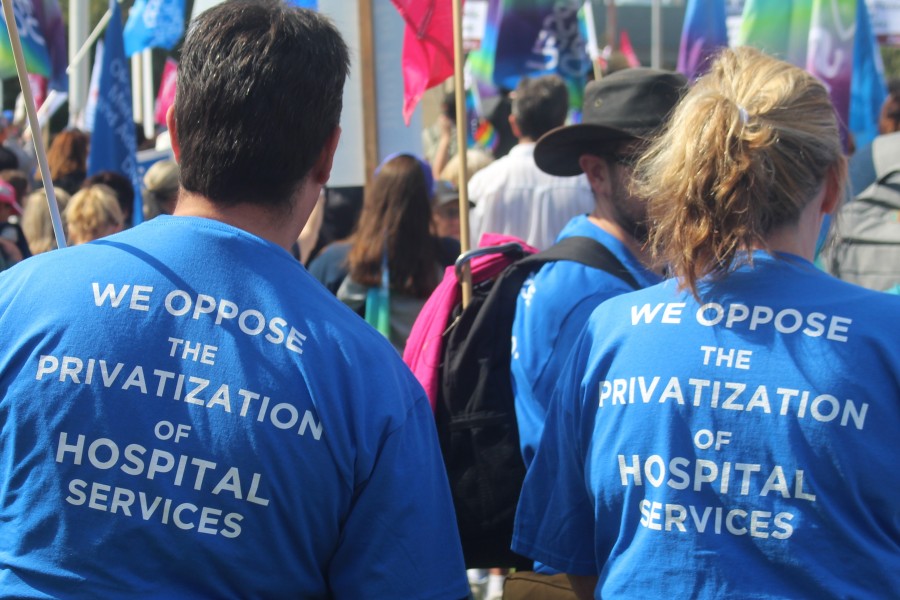
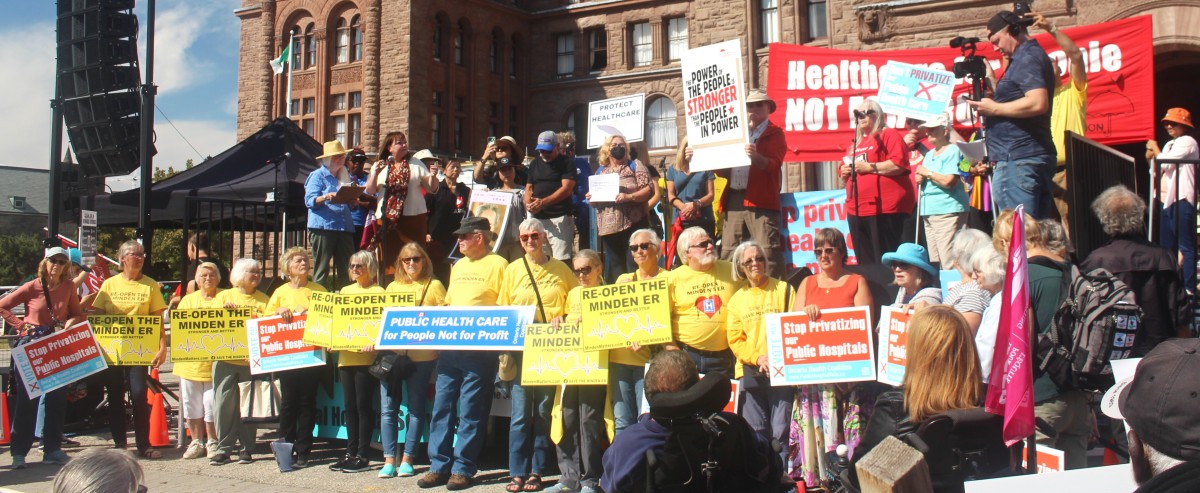
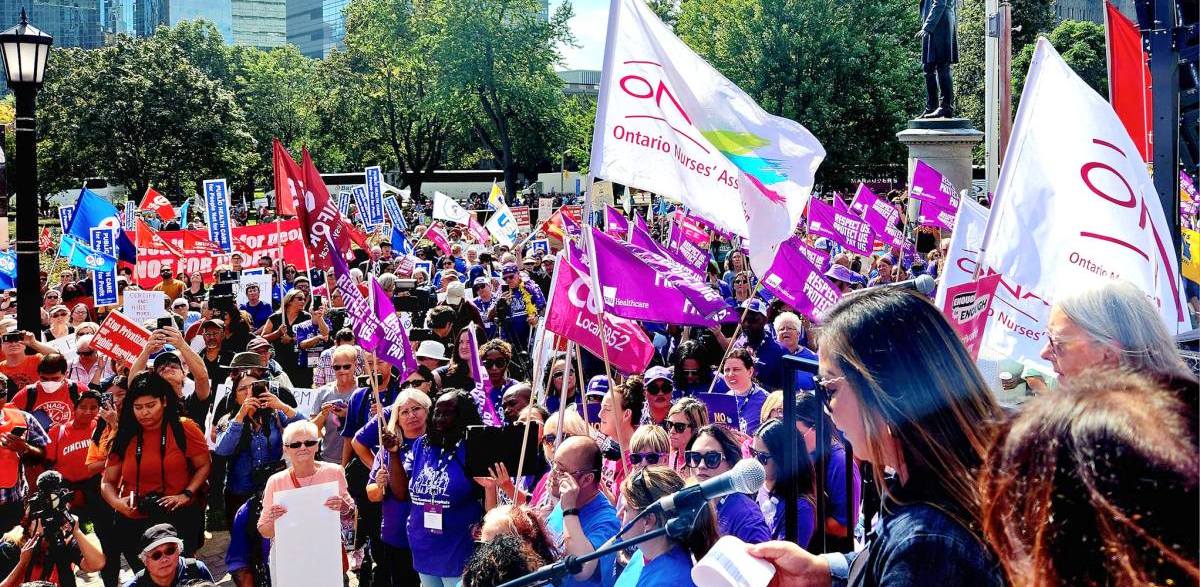
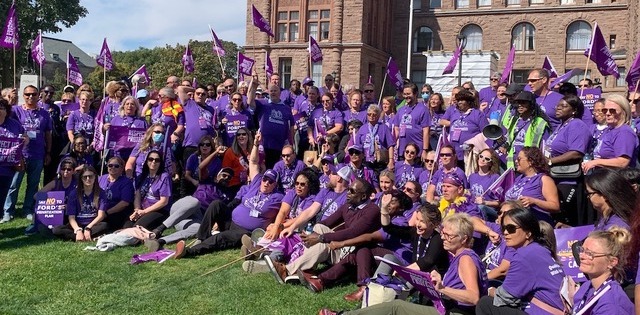
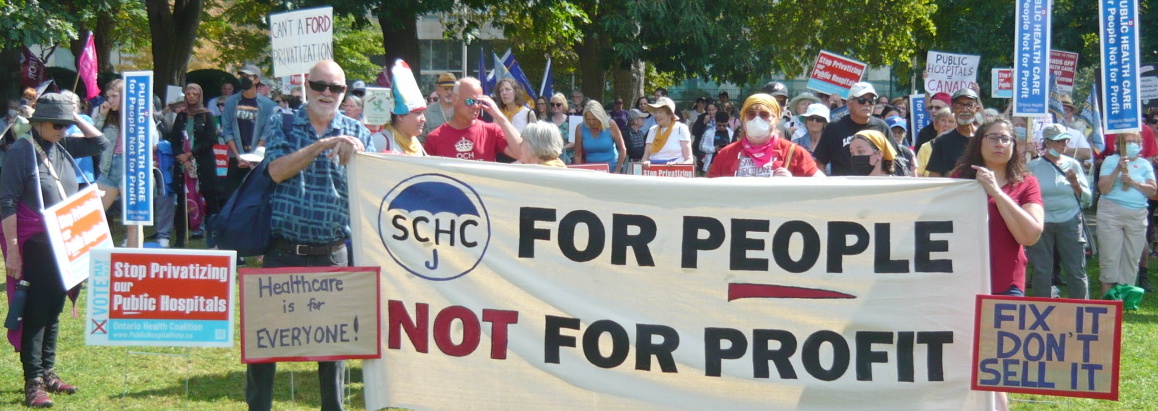

(Photos: WF, CUPE)
Worsening Crisis in Ontario Long-Term Care and Nursing Homes
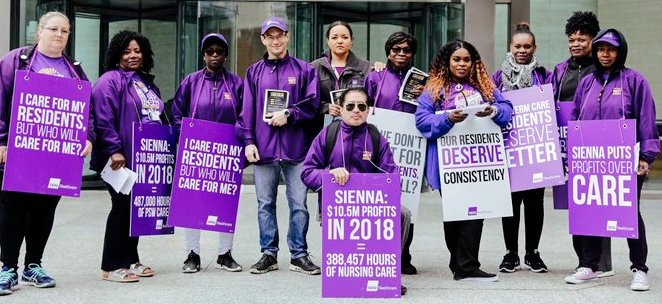
Picket by health care workers at one of private senior care companies during pandemic, July 3, 2020.
A change of direction is urgently needed!
Stop paying the rich! Increase investments in social programs!
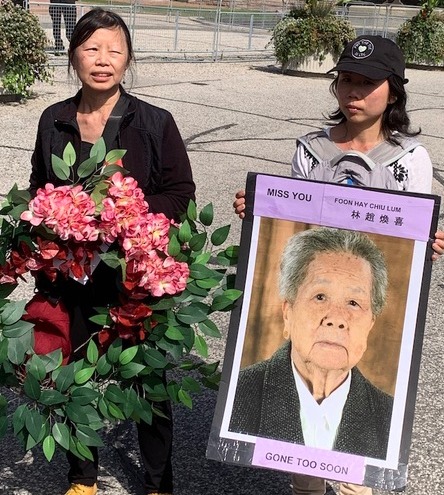
Reports are now emerging that instead of rectifying the situation as the people demand, many private owners of the long-term care and nursing homes are selling the buildings to global real estate cartels. According to the new prospective owners, the current residents will be forced to leave as the buildings will be transformed into condos or market rental units. This is aggravating an already critical situation for many Ontario seniors.
The widespread deaths in long-term care and nursing homes during the pandemic exposed many of the facilities as not fit for humans. People demand new modern standards for housing where seniors can find peace in their final years. Those in ownership and control of most long-term care and nursing homes declare that investing in improvements such as proper staffing levels will negatively affect their private profit and have decided instead to sell their property.
Last March a fund bought Cedarvale Terrace a privately-owned long-term care home in Toronto. The new owner has since applied to the city to tear down the facility to build a 19-storey condominium. Reports suggest this is not an isolated incident as privately-owned long-term care and nursing homes across Ontario are flipping their property to cash in on soaring property prices. They are selling out rather than making the necessary investments to improve conditions to modern standards. Twenty privately-owned seniors' homes across Ontario, whose licences expire in June, 2025 have said they are planning to flip their property to developers. Some suggest the "flipping" may be to themselves through numbered companies to avoid any commitment to continue as long-term care homes and thereby cash in on the condo development boom cycle.
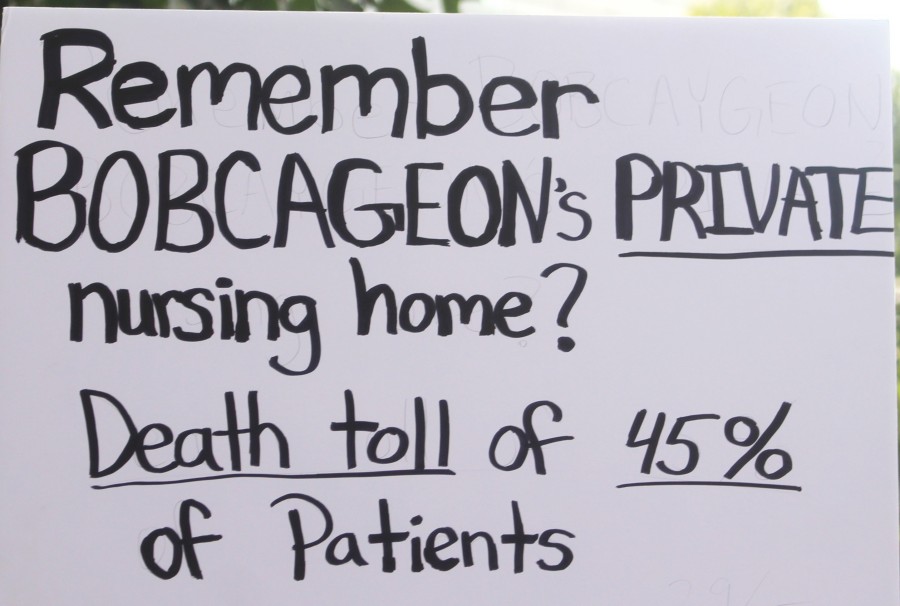
Privately-owned companies own around 60 per cent of Ontario's 626 long-term care and nursing homes. Even before the pandemic the crisis was evident. A 2017 report by the Toronto Central Local Health Integration Network (now called Home and Community Care Support Services) warned that operators of eight of the region's 36 nursing homes intended to leave the city and another six were at risk of leaving.[1] Even while facing an escalating crisis following the pandemic, the Ford provincial government refuses to invest in any facet of long-term care and nursing homes other than to provide operating funds to owners seeking private profit.
One of the ways in which funds are provided is through a construction subsidy given to private entities to renovate older nursing homes. According to a CBC report, the Ontario government has increased this subsidy as part of a plan to upgrade 28,000 long-term care beds by 2028. The subsidy normally ranges from $20.53 to $23.78 per bed, per day, paid to the operator on a monthly basis for a period of 25 years. However any projects which started construction by August 31 this year will receive an additional subsidy of up to $35 per bed, per day, also for 25 years.
Dr. Samir Sinha, the head of geriatrics at Sinai Health System in Toronto, reported to the media that the current model of private ownership of nursing homes "is a huge vulnerability for the province."
Dr. Sinha said, "There's a danger that actually providing care in these homes is a side business to the real business, which is actually property plays and making money."
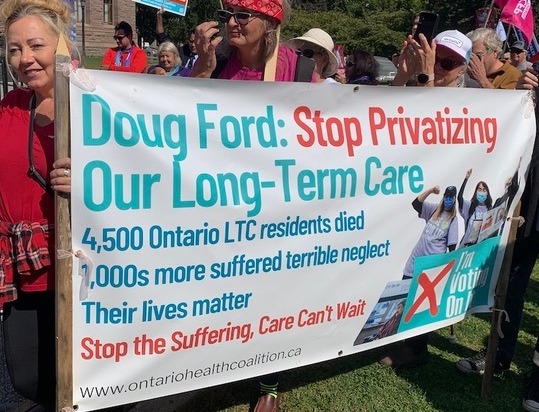
The claims that human beings are entitled to make on society, including proper care in old age, are the real engine of development in any modern society, which already has reached a high level of productive power. The building of a modern society fit for human beings and moving society forward in today's conditions begins with the recognition of the rights of all that belong to them by virtue of being human and that governments have a duty to guarantee those rights in practice.
Some suggest a step towards a modern Canada fit for all seniors is for the federal and provincial governments to form public construction, maintenance and operating enterprises that provide the highest quality long-term beds to all who require them. The price of production for building, maintaining and operating the public facilities would come directly from the gross income of companies in the socialized economy that employ more than twenty workers. The amount would form part of the social reproduced-value the working class produces collectively and claims in return for selling its capacity to work to those who own and control the main means of socialized production.
Stop Paying the Rich! Increase Investments in Social Programs!
Note
1. Below are excerpts from The Globe and Mail, April 12, 2023:
Toronto urgently needs new beds. Almost 18,000 people are waiting for one of the 9,000 spots at facilities in the former Toronto Central and Central LHINs [Local Health Integration Networks] areas that include the city centre and sections of North Toronto, Etobicoke and York Region. [...]
"The problem is there is nowhere for people to go other than very expensive retirement homes," said Natalie Mehra, executive director of the Ontario Health Coalition. "There's a crunch coming, and no one has a plan for it at all."
Jake Roseman, a spokesperson for [Ontario] Long-Term Care Minister Paul Calandra, said Toronto has been "acutely affected by construction challenges." He said the government has issued enhanced minister's zoning orders, allowing it to override municipal site plans. [...]
[Finding a new care facility] is the fate awaiting the 132 residents of Cedarvale Terrace in Toronto's tony Forest Hill neighbourhood on Walmer Road. A large sign posted outside their nursing home says its new owner is seeking the go-ahead to tear it down and build a 19-storey condominium.
Residential real estate developer Stafford Homes Ltd. applied to the City of Toronto to rezone the property shortly after purchasing it last June. The same day Stafford Homes bought Cedarvale Terrace, it also purchased Vermont Square in Seaton Village, west of the downtown, property records show. Vermont Square closed in September, 2021, and Stafford has applied to build a 10-storey condo on the site.
Nate Pace, Stafford's vice-president of acquisitions and development, said in an e-mail that the company "had no role in the decision to close either facility." Both sites were marketed as residential mixed-used development opportunities after the previous owner decided to close the "antiquated facilities," he said.
The former owner of the two homes is concealed behind numbered companies and limited-liability partnerships. Michael Fraser, the chief financial officer of All Seniors Care Living Centres, a national chain of retirement homes, is the sole director of the numbered companies for both homes as well as the general partnerships that sold them.
"I'm just a name on there, so to speak," Mr. Fraser said during a brief phone call before referring questions to Responsive Group Inc., the company that managed Vermont Square before it closed and still manages Cedarvale Terrace. "Both properties have been sold, and so I have little involvement with them now," he said in a follow-up e-mail. Nicola Major, a spokesperson for Responsive Group, declined to identify the homes' previous owner.
[Vermont Square, Cedarvale Terrace] and Garden Court Nursing Home were sold without any public notification. Nursing homes typically change hands through the transfer of their operating licences, a process that involves the Long-Term Care Ministry posting a notice on its public consultation registry. If the homes sell the shares in the corporate entity that holds the licence, however – which is how the Cedarvale Terrace, Vermont Square and Garden Court transactions were executed – no such notice is required.
Jane Meadus, a lawyer at the Advocacy Centre for the Elderly in Toronto, said all changes in ownership of a nursing home should be disclosed. With transactions done behind closed doors, she said, the public has no idea what criteria the ministry used to approve them. "There is a real question as to how this is being done," Ms. Meadus said. "Why would you allow someone to take it over if they have no interest in actually running the home?"
Barbara Chernin, who lives across the street from Cedarvale Terrace, has written to politicians at every level of government, saying it is "shameful" that seniors are getting pushed out of their homes. "This is a terribly harsh way to treat the vulnerable in our society," Ms. Chernin said during a Zoom meeting in February hosted by Toronto Councillor Josh Matlow's office.
Mr. Matlow, who [ran] for mayor, told The Globe he is also not happy to see seniors displaced. But he said the city has no jurisdiction over nursing homes. "There's no tool that's been granted by the province for the city to say, 'You must retain a long-term care home,'" he said. "That is not what the city is allowed to do."
(To access articles individually click on the black headline.)
Website: www.cpcml.ca Email: editor@cpcml.ca

